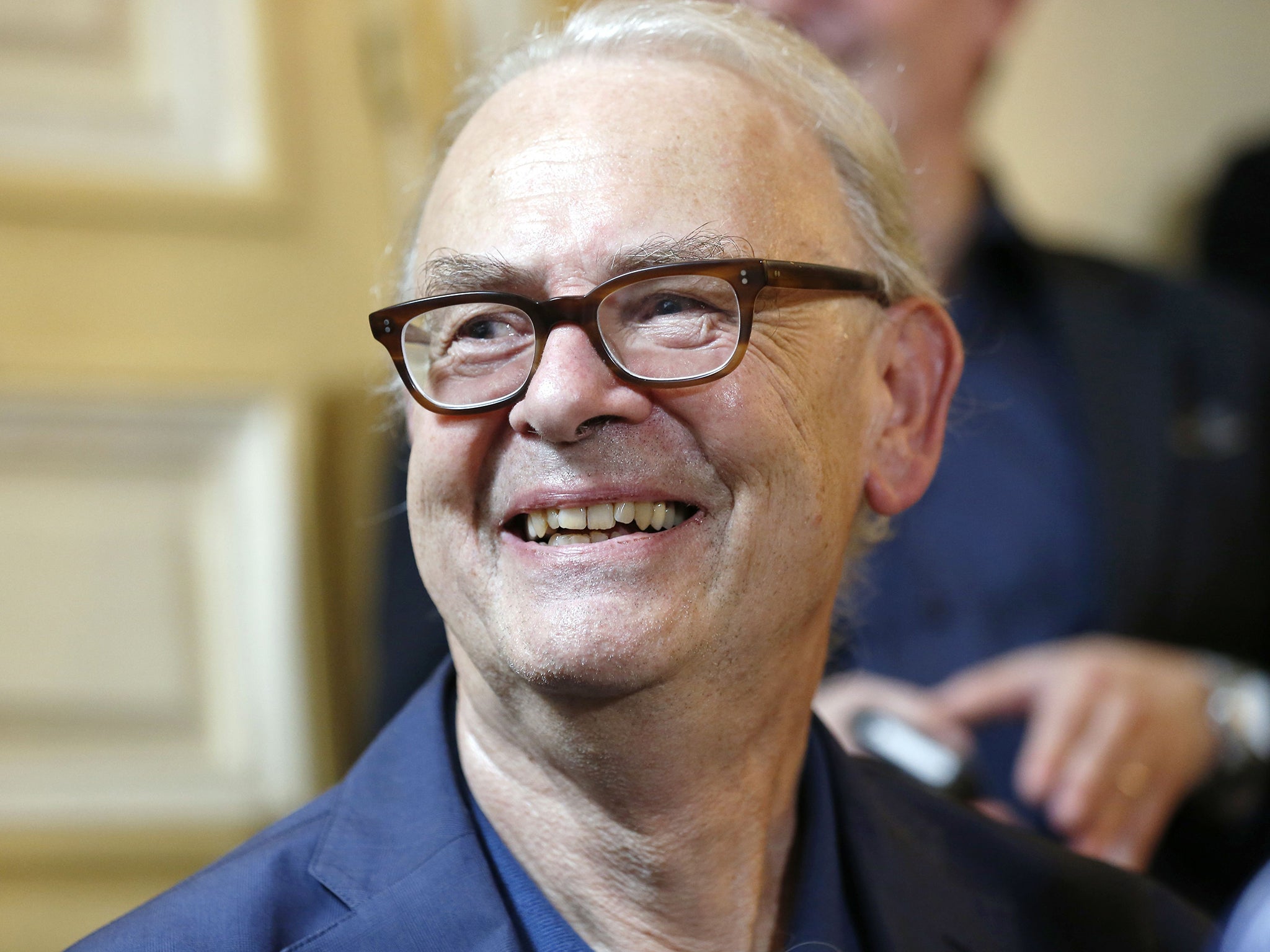Nobel Prize: French novelist Patrick Modiano receives honour for Literature
When his editor Antoine Gallimard called to tell him the news, he replied 'how bizarre', according to Le Monde newspaper

Predictably unpredictable, the Swedish Academy defied pundits, prophets and gamblers by awarding the 107th Nobel Prize in Literature to French novelist Patrick Modiano.
The author of almost 30 books since his debut novel, La Place de l’Etoile in 1968, the Paris-born author – the 11th French writer honoured with the Nobel – will now receive 8 million kronor (£700,000).
Advance rumours had named novelist-playwright Ngugi wa Thiong’o, from Kenya, and global best-seller Haruki Murakami, from Japan, as this year’s most fancied contenders.
Even Modiano, 69, was surprised to have won. When his editor Antoine Gallimard called to tell him the news, he replied “how bizarre”, according to Le Monde newspaper. Mr Gallimard said that Modiano reacted with “his usual modesty” but was “very happy”.
The Swedish Academy’s citation paid tribute to Modiano for “the art of memory with which he has evoked the most ungraspable human destinies and uncovered the life-world of the Occupation” of France by Germany during the Second World War.
Patrick Modiano’s father, Albert, originally from an Italian-Jewish family living in Greece, married a Belgian actress, Louisa Colpeyn during the Occupation. Born in July 1945, Modiano grew up amid the shadows, secrets and evasions of a country where collaboration with the Vichy regime and the German occupiers had become a taboo.
He later talked of being “a product of the dunghill of the Occupation, that bizarre time when people who should have never met did meet and by chance produced a child”.
His father had taken to the black market to survive and escape deportation to the death camps during the war: the kind of forced plunge into moral ambiguity that recurs in different forms throughout Modiano’s writing.
Modiano began to write in the mid-1960s thanks to support from his mentor Raymond Queneau – the maverick trickster of post-war literature in Paris, and a friend of Modiano’s mother.
From the satirical portrayal of anti-Semitism in his debut novel to later books such as The Search Warrant and Missing Person (winner of the Prix Goncourt), the Occupation shapes much of Modiano’s work. It features not always directly but via enigmatic quests – often through Paris – for the elusive truth about people and events. Mysterious and atmospheric, sometimes drawing its style from spy novels and film noir, his work both helped to break the post-war silence in French culture over Vichy and collaboration, and to show why those half-truths and evasions had taken root.
Douglas Kennedy, the Paris-based American novelist, told The Independent yesterday: “When it comes to recreating the atmosphere of 1960s rive gauche Paris, or the dark moral greyness of the Occupation, Modiano proves himself a master of a narrative style which could best be described as vividly elliptical.”
However, Kennedy added that: “His great central theme is the way that we are all grappling with the largest of personal enigmas: ourselves.”
Another Anglophone admirer, British novelist Rupert Thomson, said: “Like William Faulkner or Alice Munro, Patrick Modiano has succeeded in identifying a time and a place in which his fiction can earth itself and flourish – Paris during the Occupation.”
Obsessed with this “sinister and morally ambiguous era, Modiano explores universal themes of disappearance, survival, identity, and the enduring fragility of human existence”.
So far Modiano has been translated more into Swedish and German than English, and probably reached his widest audience outside France not with a novel but with the screenplay he co-wrote for Louis Malle’s 1974 film about the Occupation, Lacombe Lucien. In 2005, he explored his family history, the death of his brother and the long shadows of genocide in his autobiography, Un Pedigree.
Modiano still publishes fiction regularly: his most recent novel, Pour que tu ne te perdes pas dans le quartier, appeared only last week. In a rare 2012 interview for Le Figaro, he lamented that “with each book, the sense of dissatisfaction is just as strong”, and that writing was much the same as driving through fog: “You don’t know where you’re going, only that you have to press on”.
He also regretted that his home neighbourhood in Paris had changed so much, and gone upmarket: “The ghosts aren’t there any more. Or rather – and it’s a funny feeling – they’re now the same age as me.”
Modiano’s Nobel Prize will encourage readers around the world to discover and re-evaluate his “secret history” of the Occupation, with all the myths, fables and compromises that it spread through French life and culture for so long. However, a wider concern with memory, time and the sheer unknowability of other people also pervades his books.
As he said about the people in his latest novel: “You should never illuminate the mystery. At any rate, writers couldn’t do that… Samuel Beckett said about Proust, who did almost nothing else except explain his characters, that ‘by explaining them, he deepened their mystery’”.
Subscribe to Independent Premium to bookmark this article
Want to bookmark your favourite articles and stories to read or reference later? Start your Independent Premium subscription today.

Join our commenting forum
Join thought-provoking conversations, follow other Independent readers and see their replies